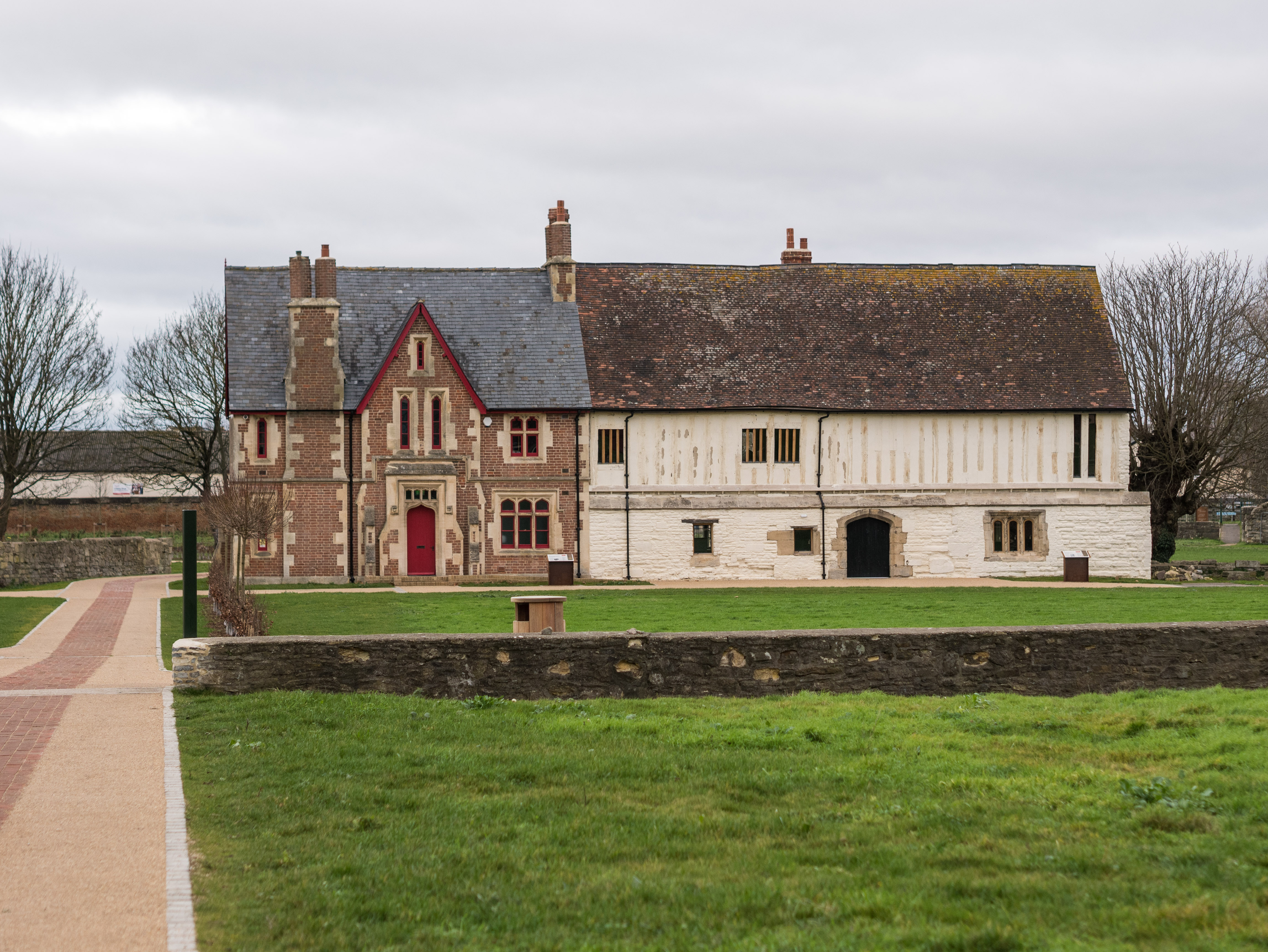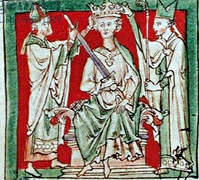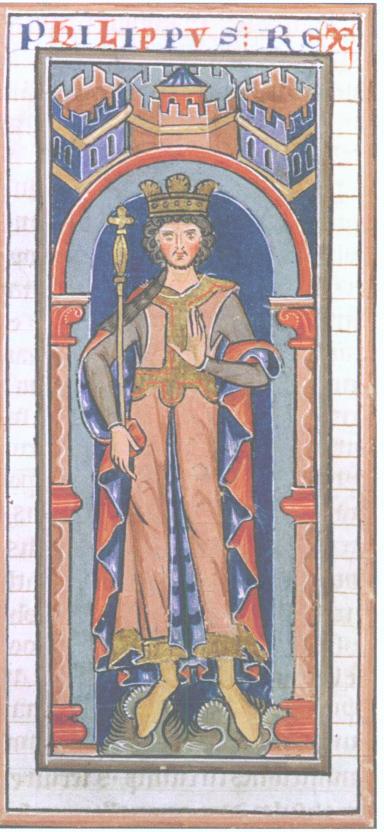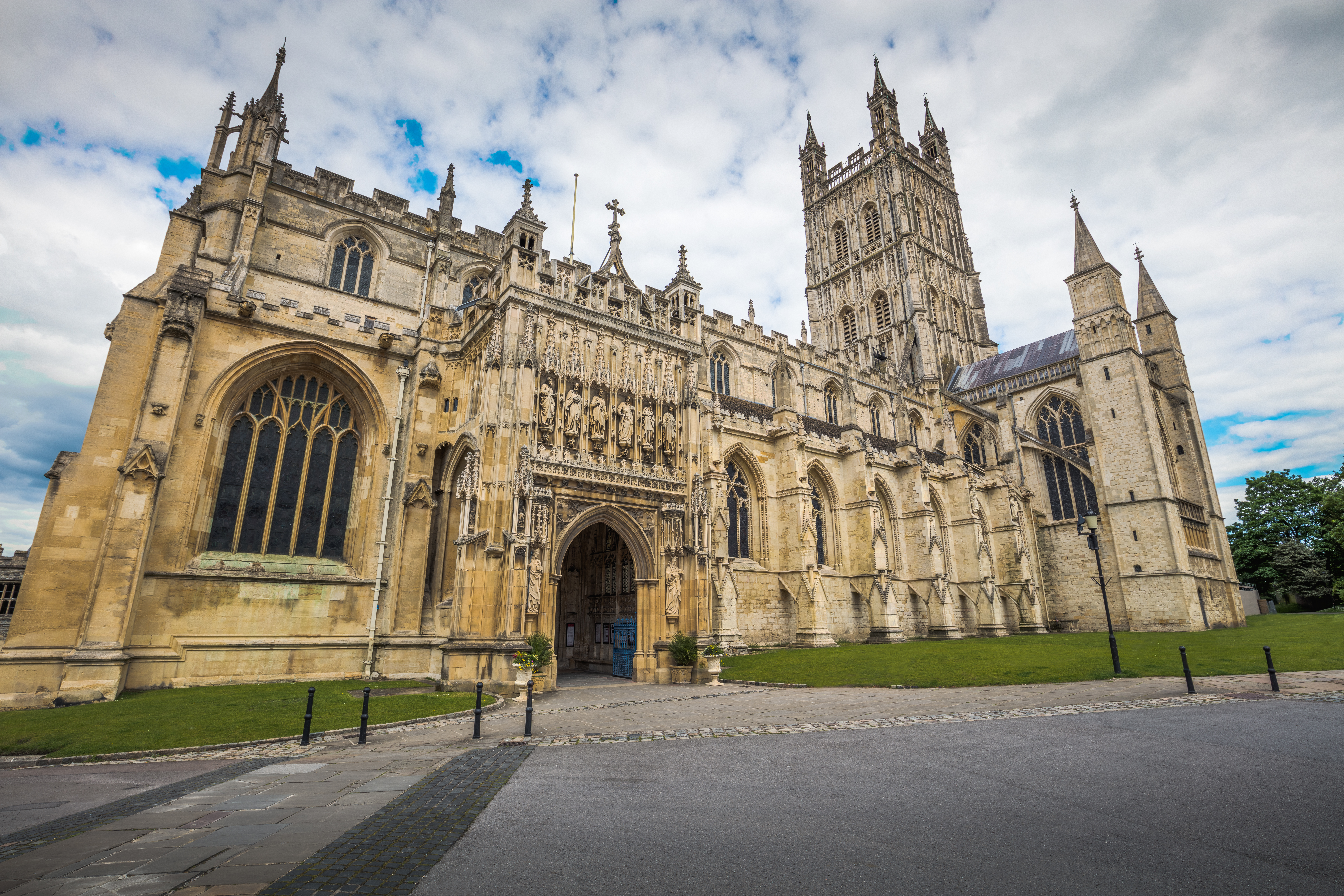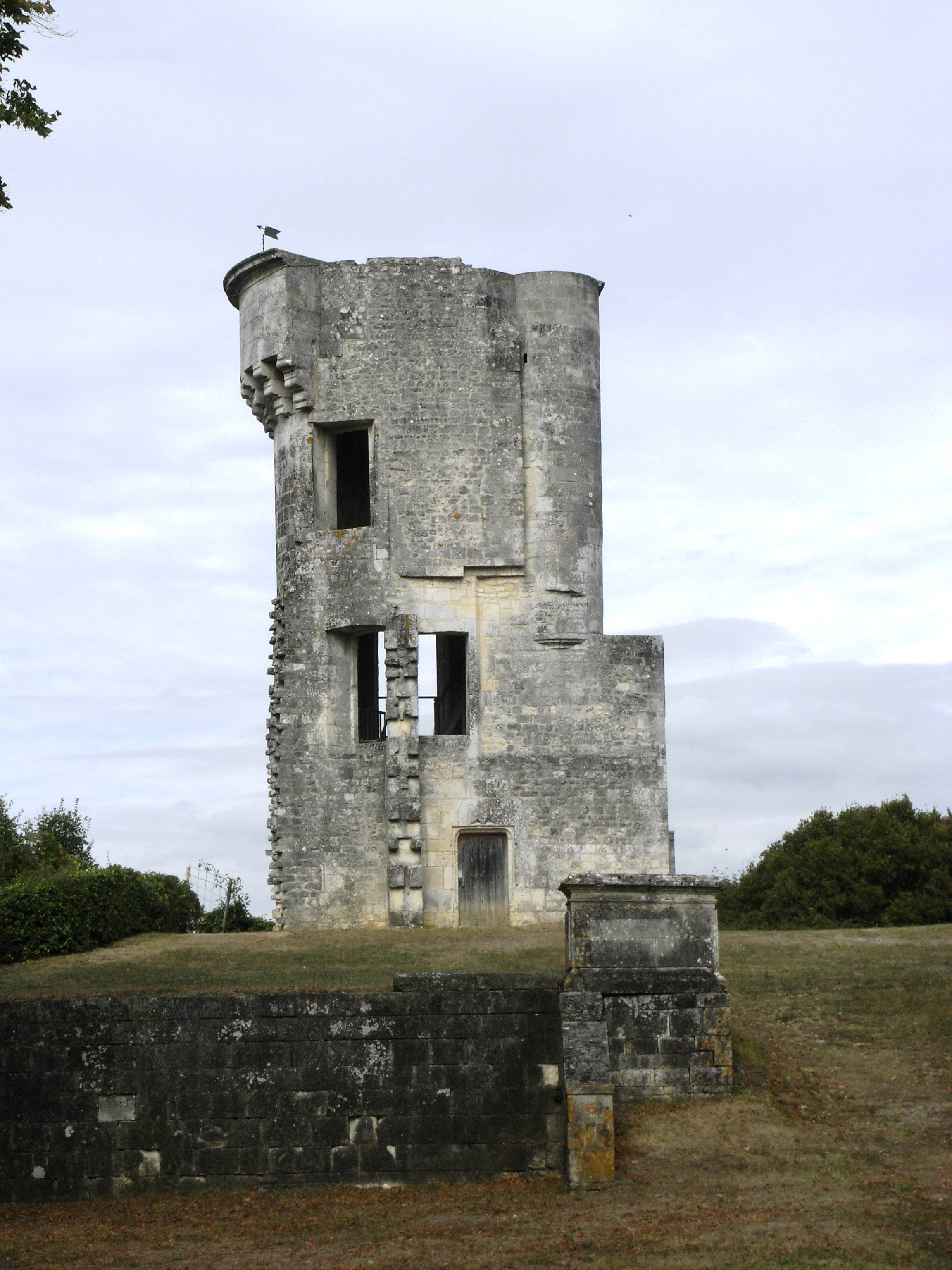|
Margaret Of Hereford
Margaret of Hereford (also Margaret de Bohun née Margaret of Gloucester, 1122/1123 – 6 April 1197) was an English noblewoman and the eldest daughter of Miles de Gloucester, 1st Earl of Hereford by his wife, the wealthy Cambro-Norman heiress Sibyl de Neufmarché. Margaret married Humphrey II de Bohun, by whom she had five children. Margaret held the office of Constable of England and as a widow, exercised lordship of Herefordshire until her own death. She was the benefactress of several religious institutions. Family Margaret was born in about 1122/1123, the eldest child of Miles de Gloucester, 1st Earl of Hereford and Sibyl de Neufmarché, heiress to one of the most substantial fiefs in the Welsh Marches. She had five younger brothers and two sisters. These were: Roger Fitzmiles, 2nd Earl of Hereford, Walter de Hereford, Henry Fitzmiles, Mahel de Hereford, William de Hereford, Bertha of Hereford, and Lucy of Hereford. The ''Historia fundationis cum fundatoris genealogia ... [...More Info...] [...Related Items...] OR: [Wikipedia] [Google] [Baidu] |
Llanthony Secunda
Llanthony Secunda Priory was a house of Canons regular#Canons Regular of Saint Augustine, Augustinian canons in the parish of Hempsted, Gloucestershire, England, situated about south-west of Gloucester Castle in the City of Gloucester. It was founded in 1136 by Miles de Gloucester, 1st Earl of Hereford, a great magnate based in the west of England and the Welsh Marches, hereditary Constable of England and Sheriff of Gloucestershire (who resided at Gloucester Castle), as a secondary house and refuge for the canons of Llanthony Priory in the Vale of Ewyas, within his Lordship of Brecknock in what is now Monmouthshire, Wales. The surviving remains of the Priory were designated as Listed building, Grade I listed in 1952 and the wider site is a scheduled ancient monument. In 2013, the Llanthony Secunda Priory Trust received funds for restoration work, which was completed in August 2018 when it re-opened to the public. History In 1135 after persistent attacks from the local Welsh popu ... [...More Info...] [...Related Items...] OR: [Wikipedia] [Google] [Baidu] |
The Anarchy
The Anarchy was a civil war in England and Duchy of Normandy, Normandy between 1138 and 1153, which resulted in a widespread breakdown in law and order. The conflict was a war of succession precipitated by the accidental death of William Adelin (the only legitimate son of Henry I of England, Henry I), who drowned in the White Ship disaster, ''White Ship'' disaster of 1120. Henry sought to be succeeded by his daughter, known as Empress Matilda, but was only partially successful in convincing the nobility to support her. On Henry's death in 1135, his nephew Stephen of Blois seized the throne with the help of Stephen's brother Henry of Blois, who was the bishop of Winchester. He was crowned as Stephen, King of England, King Stephen, and his early reign saw fierce fighting with disloyal English barons, rebellious Welsh leaders, and Scottish invaders. Following a major rebellion in the southwest of England, Matilda invaded in 1139 with the help of her half-brother Robert, 1st Earl o ... [...More Info...] [...Related Items...] OR: [Wikipedia] [Google] [Baidu] |
Lord High Constables Of England
Lord is an appellation for a person or deity who has authority, control, or power over others, acting as a master, chief, or ruler. The appellation can also denote certain persons who hold a title of the peerage in the United Kingdom, or are entitled to courtesy titles. The collective "Lords" can refer to a group or body of peers. Etymology According to the ''Oxford Dictionary of English'', the etymology of the word can be traced back to the Old English word ''hlāford'' which originated from ''hlāfweard'' meaning "loaf-ward" or "bread-keeper", reflecting the Germanic tribal custom of a chieftain providing food for his followers. The appellation "lord" is primarily applied to men, while for women the appellation "lady" is used. This is no longer universal: the Lord of Mann, a title previously held by the Queen of the United Kingdom, and female Lords Mayor are examples of women who are styled as "Lord". Historical usage Feudalism Under the feudal system, "lord" had a wi ... [...More Info...] [...Related Items...] OR: [Wikipedia] [Google] [Baidu] |
1197 Deaths
Year 1197 ( MCXCVII) was a common year starting on Wednesday of the Julian calendar. Events By place Europe * Spring – Emperor Henry VI travels to Italy to persuade Pope Celestine III to crown his infant son Frederick II, who has been elected "King of the Romans" at Frankfurt. * King Richard I (the Lionheart) has Château Gaillard (Normandy) built on the Seine River as he fights to restore Angevin power in northern France (approximate date). * Summer – Henry VI takes cruel measures to put down Jordan Lupin's insurrection in Sicily and southern Italy, which has been provoked by the oppression of his German officials. * June/July – German crusaders launch an attack on Silves. * September 28 – Henry VI dies of malaria at Messina (also possibly poisoned), while preparing an expedition against the Byzantine usurper Alexios III (Angelos). * Autumn – A German civil war begins upon the sudden death of Henry VI. Henry's brother, Philip o ... [...More Info...] [...Related Items...] OR: [Wikipedia] [Google] [Baidu] |
1120s Births
Eleven or 11 may refer to: *11 (number) * One of the years 11 BC, AD 11, 1911, 2011 Literature * ''Eleven'' (novel), a 2006 novel by British author David Llewellyn *''Eleven'', a 1970 collection of short stories by Patricia Highsmith *''Eleven'', a 2004 children's novel in The Winnie Years by Lauren Myracle *''Eleven'', a 2008 children's novel by Patricia Reilly Giff *''Eleven'', a short story by Sandra Cisneros Music * Eleven (band), an American rock band * Eleven: A Music Company, an Australian record label *Up to eleven, an idiom from popular culture, coined in the movie ''This Is Spinal Tap'' Albums * ''11'' (The Smithereens album), 1989 * ''11'' (Ua album), 1996 * ''11'' (Bryan Adams album), 2008 * ''11'' (Sault album), 2022 * ''Eleven'' (Harry Connick, Jr. album), 1992 * ''Eleven'' (22-Pistepirkko album), 1998 * ''Eleven'' (Sugarcult album), 1999 * ''Eleven'' (B'z album), 2000 * ''Eleven'' (Reamonn album), 2010 * ''Eleven'' (Martina McBride album), 2011 * ''Eleven'' (Mr F ... [...More Info...] [...Related Items...] OR: [Wikipedia] [Google] [Baidu] |
Henry De Bohun, 1st Earl Of Hereford
Henry de Bohun, 1st Earl of Hereford (1176 – 1 June 1220) of Pleshey Castle in Essex, was an Anglo-Normans, Anglo-Norman Nobility, nobleman who became Hereditary Constable of England from 1199. Origins Henry was the son and heir of Humphrey III de Bohun and Margaret of Huntingdon, Duchess of Brittany, Margaret of Huntingdon, daughter of Henry of Scotland. His father was lord of Trowbridge Castle in Wiltshire and Caldicot Castle in south-east Wales, and was the 5th English feudal barony, feudal baron of Trowbridge. His father served King Henry II of England, Henry II as Lord High Constable of England. Henry had a half-sister, Constance, Duchess of Brittany. Earldom His paternal grandmother was Margaret of Hereford, a daughter of Miles of Gloucester, 1st Earl of Hereford, Miles FitzWalter of Gloucester, 1st Earl of Hereford, Lordship of Brecknock, Lord of Brecknock (died 1143), Sheriff of Gloucester and Constable of England. After the male line of Miles of Gloucester fa ... [...More Info...] [...Related Items...] OR: [Wikipedia] [Google] [Baidu] |
John Of England
John (24 December 1166 – 19 October 1216) was King of England from 1199 until his death in 1216. He lost the Duchy of Normandy and most of his other French lands to King Philip II of France, resulting in the collapse of the Angevin Empire and contributing to the subsequent growth in power of the French Capetian dynasty during the 13th century. The First Barons' War, baronial revolt at the end of John's reign led to the sealing of Magna Carta, a document considered a foundational milestone in English and later British constitution of the United Kingdom, constitutional history. John was the youngest son of King Henry II of England and Duchess Eleanor of Aquitaine. He was nicknamed John Lackland () because, as a younger son, he was not expected to inherit significant lands. He became Henry's favourite child following the failed revolt of 1173–1174 by his brothers Henry the Young King, Richard I of England, Richard, and Geoffrey II, Duke of Brittany, Geoffrey against their ... [...More Info...] [...Related Items...] OR: [Wikipedia] [Google] [Baidu] |
Gloucester
Gloucester ( ) is a cathedral city, non-metropolitan district and the county town of Gloucestershire in the South West England, South West of England. Gloucester lies on the River Severn, between the Cotswolds to the east and the Forest of Dean to the west; it is sited from Monmouth, from Bristol, and east of the England and Wales border, border with Wales. Gloucester has a population of around 132,000, including suburban areas. It is a port, linked via the Gloucester and Sharpness Canal to the Severn Estuary. Gloucester was founded by the Roman Empire, Romans and became an important city and ''Colonia (Roman), colony'' in AD 97, under Nerva, Emperor Nerva as ''Glevum, Colonia Glevum Nervensis''. It was granted its first charter in 1155 by Henry II of England, Henry II. In 1216, Henry III of England, Henry III, aged only nine years, was crowned with a gilded iron ring in the Chapter House of Gloucester Cathedral. Gloucester's significance in the Middle Ages is unde ... [...More Info...] [...Related Items...] OR: [Wikipedia] [Google] [Baidu] |
Gloucestershire
Gloucestershire ( , ; abbreviated Glos.) is a Ceremonial counties of England, ceremonial county in South West England. It is bordered by Herefordshire to the north-west, Worcestershire to the north, Warwickshire to the north-east, Oxfordshire to the east, Wiltshire to the south, Bristol and Somerset to the south-west, and the Wales, Welsh county of Monmouthshire to the west. The city of Gloucester is the largest settlement and the county town. The county is predominantly rural, with an area of and a population of 916,212. After Gloucester (118,555) the largest distinct settlements are Cheltenham (115,940), Stroud (26,080), and Yate (28,350). In the south of the county, the areas around Filton and Kingswood, South Gloucestershire, Kingswood are densely populated and part of Bristol Built-up Area, Bristol built-up area. For Local government in England, local government purposes Gloucestershire comprises a non-metropolitan county, with six districts, and the Unitary authorities ... [...More Info...] [...Related Items...] OR: [Wikipedia] [Google] [Baidu] |
Scutage
Scutage was a medieval English tax levied on holders of a knight's fee under the feudal land tenure of knight-service. Under feudalism the king, through his vassals, provided land to knights for their support. The knights owed the king military service in return. The knights were allowed to "buy out" of the military service by paying scutage (a term derived from Latin '' scutum'', " shield"). As time passed the kings began to impose a scutage on holders of knight's fees, whether or not the holder was actually a knight. General information The institution existed under Henry I (reigned 1100–1135) and Stephen (reigned 1135–1154), when it occurs as ''scutagium'', ''scuagium'' or ''escuagium''. The creation of fractions of knights' fee probably hastened its introduction: the holders of such fractions could only discharge their obligation ''via'' scutage. The increasing use of mercenaries in the 12th century would also make a money payment of greater use to the crown. ... [...More Info...] [...Related Items...] OR: [Wikipedia] [Google] [Baidu] |
Richard I Of England
Richard I (8 September 1157 – 6 April 1199), known as Richard the Lionheart or Richard Cœur de Lion () because of his reputation as a great military leader and warrior, was King of England from 1189 until his death in 1199. He also ruled as Duke of Normandy, Duke of Aquitaine, Aquitaine, and Duchy of Gascony, Gascony; Lord of Cyprus in the Middle Ages, Cyprus; Count of Poitiers, Counts and dukes of Anjou, Anjou, Count of Maine, Maine, and Count of Nantes, Nantes; and was overlord of Brittany at various times during the same period. He was the third of five sons of Henry II of England and Eleanor of Aquitaine and was therefore not expected to become king, but his two elder brothers predeceased their father. By the age of 16, Richard had taken command of his own army, putting down rebellions in Poitou against his father. Richard was an important Christian commander during the Third Crusade, leading the campaign after the departure of Philip II of France and achieving sev ... [...More Info...] [...Related Items...] OR: [Wikipedia] [Google] [Baidu] |
Henry II Of England
Henry II () was King of England The monarchy of the United Kingdom, commonly referred to as the British monarchy, is the form of government used by the United Kingdom by which a hereditary monarch reigns as the head of state, with their powers Constitutional monarchy, regula ... from 1154 until his death in 1189. During his reign he controlled Kingdom of England, England, substantial parts of Wales in the High Middle Ages, Wales and Lordship of Ireland, Ireland, and much of Kingdom of France, France (including Duchy of Normandy, Normandy, County of Anjou, Anjou, and Duchy of Aquitaine, Aquitaine), an area that altogether was later called the Angevin Empire, and also held power over Kingdom of Scotland, Scotland and the Duchy of Brittany. Henry was the eldest son of Geoffrey Plantagenet, Count of Anjou, and Empress Matilda, Matilda, daughter of Henry I of England. By the age of fourteen, he became politically and militarily involved in The Anarchy, his mother's efforts ... [...More Info...] [...Related Items...] OR: [Wikipedia] [Google] [Baidu] |
